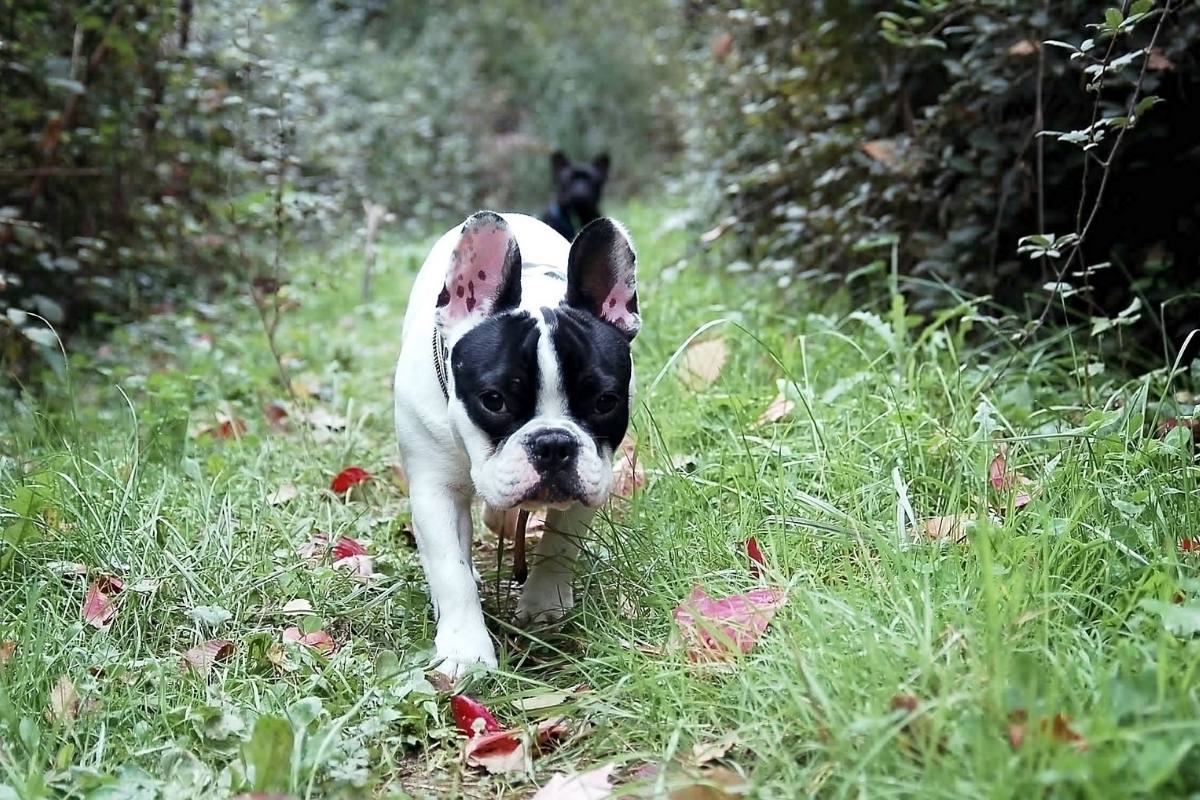The daily walk is quite possibly the most exciting thing that happens in your dog’s life. Even a casual glance at the leash can trigger jumping and tail wagging. But sometimes this treasured ritual can move more than just your dog’s paws, leading you to ask:
Why does my dog poop so much on walks? Barring possible medical problems, the answer has mostly to do with behavior. This could be what your dog does when excited, or your dog wants to communicate something to other dogs.
In this article we’ll discuss how excitement can trigger your dog’s pooping reflex, and we’ll also look at what your dog may be trying to tell other dogs by pooping. But before we get into all that, we need to lay some foundational knowledge. Let’s talk poop!
What You Need to Know About Your Dog’s Poop
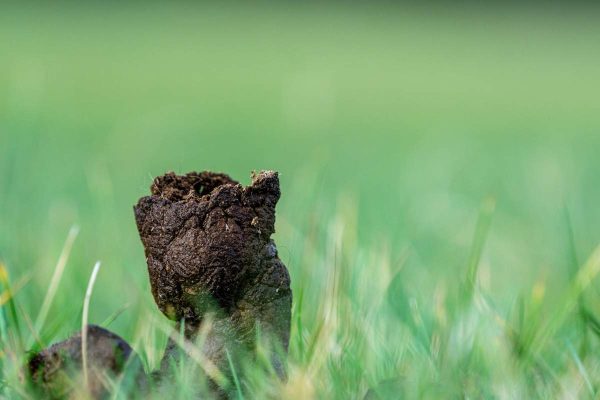
Your dog’s poop is like an instant health check. It can tell you a lot about your dog, but you need to know what is normal and abnormal.
What Should Your Dog’s Poop Look Like?
Dog poop is rated in four categories. Think of them as the four Cs: color, consistency, content, and coating.
– Color: A healthy dog’s poop should look brown, but other colors can tell a different story. If your dog’s poop is green it could be an indicator of having eaten grass to calm an upset stomach. Black or maroon poop or poop with red streaks in it may indicate that your dog has bleeding somewhere in the intestinal track.
Yellow could indicate liver, pancreas, or gallbladder trouble, and white spots could be worms.
– Consistency: Your dog’s poop should be solid and firm, not liquid or runny for too long a time.
– Content: A vet’s eye and a vet’s microscope can find the nitty gritty things you can’t see, but basically you don’t want to find worms, clumps of fur, or anything that looks like it shouldn’t be there (for example, rocks, small Legos, or ear rings).
– Coating: Finally, you don’t want to see anything coating your dog’s poop. It would look like mucus, leaving behind a trail when you pick it up, and could be a sign of large bowel inflammation that generally occurs with diarrhea.
How Many Times a Day Should Your Dog Poop?
There is a lot of room for variation here. Your dog will probably poop between one to five times a day depending on your dog’s age, how much your dog has eaten in the last 24 hours, how much fiber is in your dog’s diet, and whether or not your dog is taking medications.
But as long as the four C’s check out as normal and your dog isn’t having multiple bouts of diarrhea or uncontrolled pooping (both of which we’ll discuss briefly at the end of the article) there’s no reason to be alarmed about the frequency of your dog’s poop.
Now that we know a little bit more about your dog’s poop, let’s take a look at the question.
Excitement
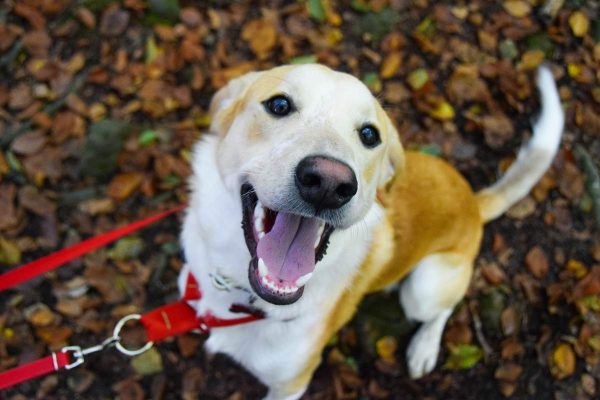
The most likely explanation is the simplest. Your dog poops a lot on walks because of excitement, and when it comes to the daily walk, there’s a lot to get excited about. Possibly you’ve been at work all day, so your dog has been home alone craving your attention.
From the time your car door shuts in the driveway, your dog is thrilled to interact with you. The walk is often the height of that interaction because your dog also gets to investigate all the sights and smells around the neighborhood. It’s like doggy Disney Land, and who doesn’t get excited about Disney Land?
Excitement and Fight or Flight
We tend to think of excitement as a positive response and fight or flight as a negative response. But in your dog’s mind, the two things trigger the same neuro response. When this happens, the brain sends out epinephrine (adrenaline) to get the body ready for action.
Your dog’s breathing, heart rate and blood pressure all increase, and more blood is pumped into the muscles. Finally, your dog’s digestive track can speed up as well. Because your dog’s bowels want to evacuate more quickly, your dog may want to poop more on walks.
Runny Poop
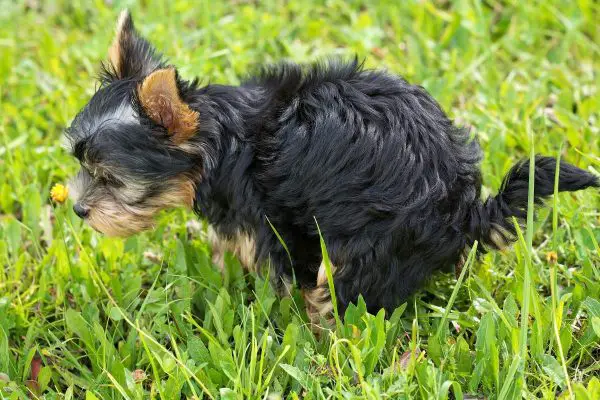
Not only that, but your dog may also have runny poop. A little bit of runny poop is ok and nothing to be concerned about. Dog owners in the forums and feeds I looked at all commented that runny poop on a walk was not at all unusual.
Food passes through a series of organs in your dog’s digestive track before coming to the large intestine where it is basically fecal matter. That intestine’s job is to take moisture out of the poop, so the body doesn’t dehydrate.
But if your dog is excited and the adrenal response is kicking in, waste may be moving through the intestine more quickly, not giving it enough time to remove the moisture it normally would remove.
Communication
One of the things your dog is likely doing on a normal walk is sniffing. Sometimes they have their nose in the air, sometimes down on the ground. Sometimes they stop you dead in your tracks to sniff a bush or a peculiar rock. Dogs are very interested in scent and dogs’ butts contribute to that interest.
Have you ever wondered why dogs sniff each other’s butt? It’s because your dog has scent glands around the anus and that scent is a kind of individual identifier, like a name tag, just not pinned to the chest. When your dog goes poop, it activates those glands and leaves your dog’s scent on the poop.
This is how dogs tell each other that they stopped by this way a little while ago. It also communicates their emotional state, so other dogs can pick up on things like fear. Your dog’s poop may warn other dogs to stay away from an area. In fact, because your dog has a vomeronasal organ in the roof of the mouth, he may try tasting the poop to get more information about the dog who created it.
Yep, believe it or not, poop tells a story.
As a side note, it’s best not to let your dog eat poop since it can contain salmonella, E. coli, and parvo, among other bacteria and parasites that can be bad for your dog and transmitted to humans.
When Pooping Is a Problem
As we saw earlier, there can be such a thing as too much poop. So how do we know? Occasionally your dog will have some runny poops, but you want to watch for multiple bouts of diarrhea. Your dog’s stomach may just be upset at having eaten something unfamiliar, or it could be more serious like an infection or a parasite.
In some cases, it may be that your dog cannot control bowel movements. Below are some things to consider.
Lack of Bowel Control
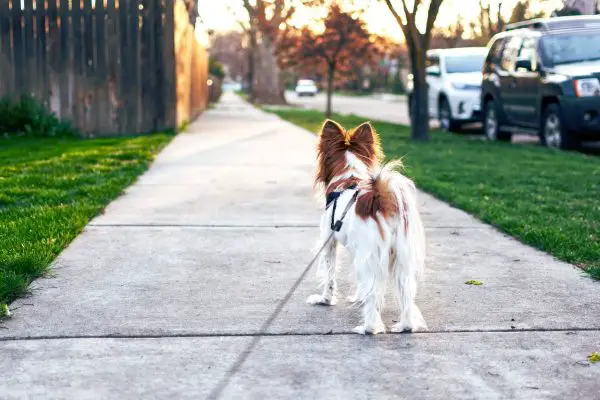
A variety of things could cause lack of bowel control in your dog. These causes could include spinal cord disease or damage, nerve damage, muscle atrophy, viruses (such as Parvo), or parasites (which could damage muscles in the rectum with multiple bouts of diarrhea).
These things can potentially result in the loss of your dog’s ability to control a bowel movement. One of the symptoms of this can be pooping while your dog is walking (in other words, in the act of walking, not just during a walk). If you see this happening, watch for some other symptoms:
- the inability of the sphincter to close all the way
- pooping while sleeping
- bloated abdomen
- bum-scooting on the floor
- vomiting
- diarrhea
Some causes to this problem, such as infection or parasites, can be treated with medication. Other causes may not have a treatment, and if your dog is old, incontinence may be a fact of life moving forward. But in all cases, your dog’s vet will be able to diagnose and treat your dog accordingly.
Conclusion
So, why does your dog poop so much on walks? Probably your dog is thrilled for the chance to check out what is going on in the neighborhood. When you grab the leash your dog’s nervous system starts shooting adrenaline throughout his body causing muscles to be ready for action and bowels to start pushing out waste.
Also, remember that there’s a world of scents out there that your dog can’t wait to investigate. Pooping and sniffing other dog’s poop is like an exchange of mail in the doggy world, so your dog could be pooping a lot to tell other dogs what’s going on in the neighborhood.
Keep your eye on your dog’s poop and you’ll always have an update on their general health. By checking color, content, coating, and consistency, you can catch warning signs if anything does happen to be wrong. But don’t let it distract you. This is your best friend’s favorite one-on-one time!

